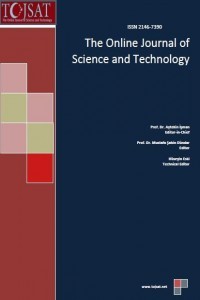Is IBL (Inquiry based learning) Helping Zayed University Students Acquire Scientific Skills In A General Science Course?
Is IBL (Inquiry based learning) Helping Zayed University Students Acquire Scientific Skills In A General Science Course?
___
- according to constructivism in science education? Research in Science Education, 43(6), 2477-2496.
- Bianchini, J. A., & Colburn, A. (2000). Teaching the nature of science through inquiry to prospective elementary teachers: A tale of two researchers. Journal of Research in Science Teaching, 37(2), 177-209.
- Biggs, J., & Tang, C. (2011). Teaching for quality learning at university McGraw-Hill International.
- Brickman, P., Gormally, C., Armstrong, N., & Hallar, B. (2009). Effects of inquiry-based learnin science literacy skills and confidence. International Journal for the Scholarship of Teaching and Learning, 3(2), 1-22.
- Bruner, J. S. (1961). The act of discovery. Harvard Educational Review, Crawford, B. A. (2007). Learning to teach science as inquiry in the rough and tumble of practice. Journal of Research in Science Teaching, 44(4), 613-642.
- Egenrieder, J. A. (2007). Community-focused, project-based learning to promote diversity in STEM. Journal of Virginia Science Education, 1(2), 5-16.
- Haury, D. L. (1993). Teaching science through inquiry. ERIC/CSMEE digest.
- Justice, C., Rice, J., Roy, D., Hudspith, B., & Jenkins, H. (2009). Inquiry-based learning in higher education: he curriculum. Higher Education, 58(6), 841- 855.
- Li, M., & Zhao, Y. (2015). Exploring learning & teaching in higher education. New Frontiers of Educational Research (,
- Loucks-Horsley, S., & Olson, S. (2000). Inquiry and the national science education standards:: A guide for teaching and learning National Academies Press.
- ROTH, W., & Jornet, A. (2014). Toward a theory of experience. Science Education, 98(1), 106-126.
- Smith, K. A., Sheppard, S. D., Johnson, D. W., & Johnson, R. T. (2005). Pedagogies of engagement: Classroom based practices. Journal of Engineering Education, 94(1), 87-101.
- Wood, W. B. (2003). Inquiry-based undergraduate teaching in the life sciences at large research universities: A perspective on the boyer commission report. Cell Biology Education, 2(2), 112-116. doi:10.1187/cbe.03-02-0004 [doi]
- ISSN: 2146-7390
- Başlangıç: 2011
- Yayıncı: The association of science, education and technology
The Motion of Slovak Vocabulary As a Reflection of Society Development After Year 1989
From Methodology of the Mother Tongue to Methodology of Slovak as a Foreign Language
Accounting in the Cloud Computing
Elzbieta WYSLOCKA, Dorota JELONEK
Icons and Icons: New Paradigms In Interface Design
Categorial Participant of Slovak Semantic Sentence Structure. Sentences of Existence
Trends in Human Development Index of European Union
Co-creation of Innovation Using the Potential of Web 2.0 Tools
Dorota JELONEK, Elzbieta WYSLOCKA
E-Consumer Behaviour as a New Trend of Consumption in Poland
